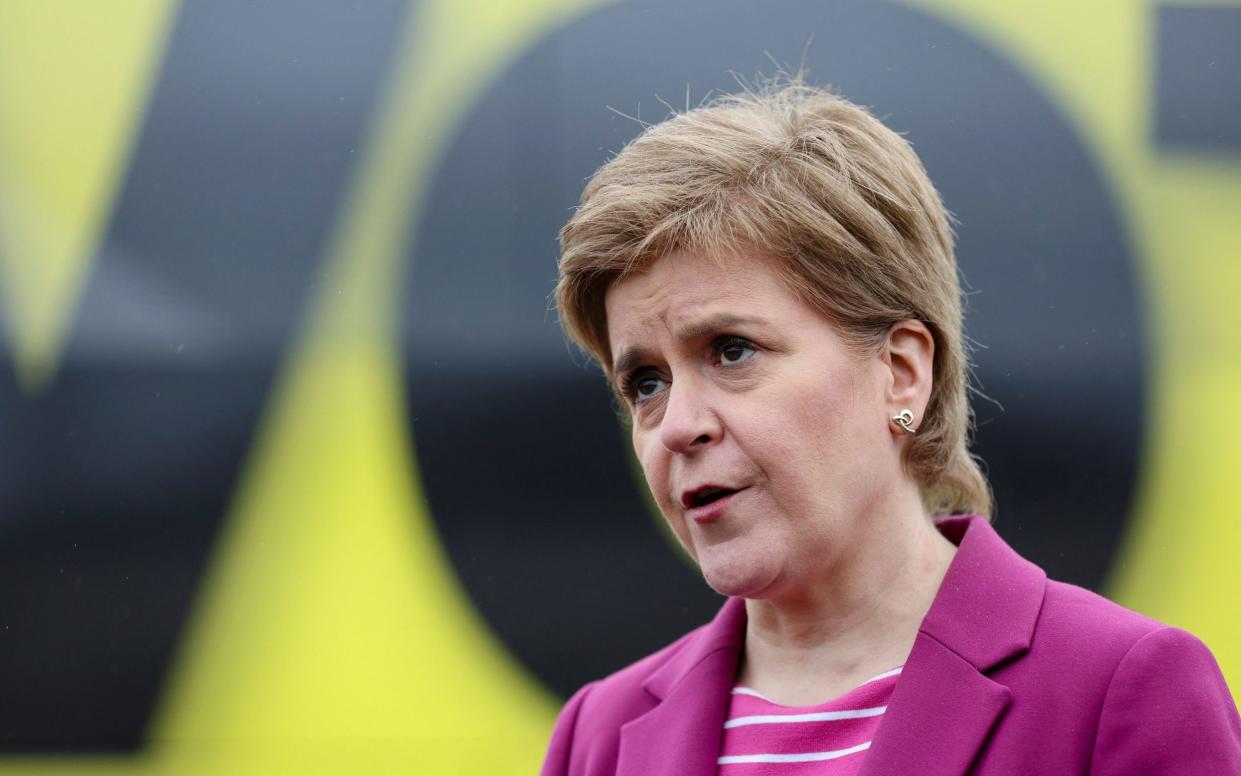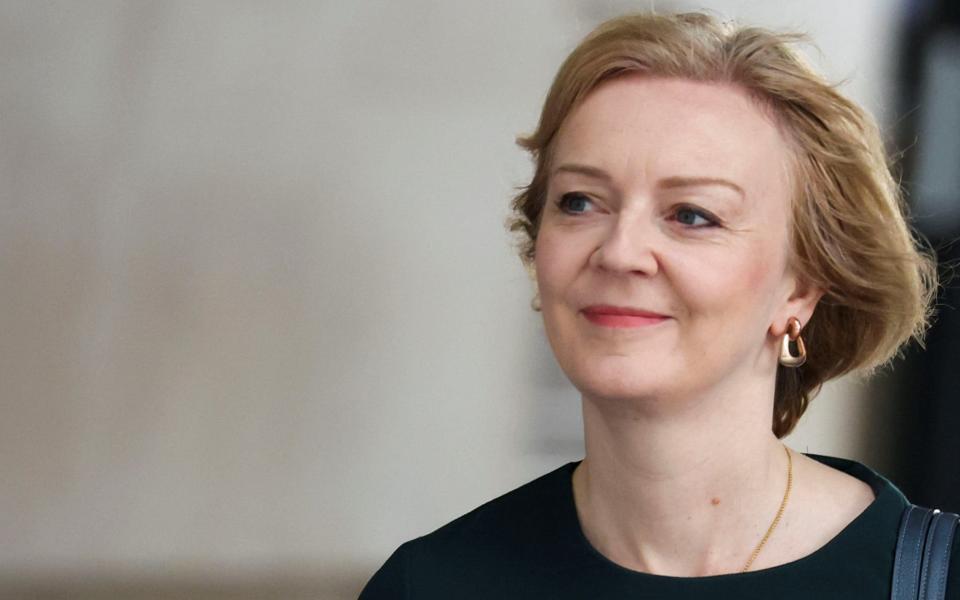Truss should not 'gerrymander' any future independence referendum, Sturgeon says

Nicola Sturgeon has said any attempts by Liz Truss to "gerrymander" the rules of a future independence referendum would be a "sign of fundamental weakness" in the case for the Union.
The First Minister claimed a suggestion that half of the entire Scottish electorate would have to vote for independence for the country to leave the UK, rather than a majority of those turning up to vote, would amount to "changing the basic rules of democracy."
The Sunday Times reported that ministerial allies of Ms Truss, who is almost certain to become the next Prime Minister, want to introduce a referendum act which would set out the roadmap to a new referendum and independence.
It is claimed that a new vote, which Ms Sturgeon wants to hold next year, would only be considered by the UK Government if there was evidence 60 per cent of the voters wanted one over more than a year.
If a referendum did take place, independence would have to be endorsed by a majority of the whole electorate, meaning Yes could win more than half of votes cast but Scotland would still remain in the UK.

It follows Ms Truss saying repeatedly during the campaign for the Tory leadership that she would not allow a new independence referendum to take place.
"It is not a sign of strength on the part of Liz Truss to talk about blocking a referendum, or as some reports today suggest, gerrymandering the rules for the referendum," Ms Sturgeon told Sky News.
"That is a sign of fundamental weakness and her lack of confidence in her case for the Union.
"It is the changing of the basic rules of democracy that we have all abided by, for our entire lifetimes and long before that.
"Can you imagine the furore, the literal foaming at the mouth, that we would have had from the Conservative Party if anybody had suggested that for the Brexit referendum?"
She added: "Just because you fear losing a democratic contest is not an excuse, or doesn't make it acceptable, to try to rewrite the rules of democracy."
Some unionists fear that a more hardline strategy from Number 10 could play into the SNP’s hands, with opinion polls suggesting that most Scots still do not back independence.
Ms Sturgeon’s senior law officer, the Lord Advocate Dorothy Bain, has asked the Supreme Court to rule on whether Holyrood would have the power to hold a referendum without UK Government permission.
However, even Ms Bain has said she does not have confidence that a unilateral referendum would be within Holyrood’s powers and experts believe Ms Sturgeon’s prospects of success in court are vanishingly slim.
In 2014, 55 per cent of Scots voted to remain within the Union, with a turnout of 85 per cent. In the 1979 referendum on devolution, a Scottish Parliament was scuppered despite most voters supporting the idea, due to a similar clause to the one floated on Sunday morning.
Then, 51.6 per cent of voters backed the idea, but a clause had been inserted which stated 40 per cent of the total electorate had to support it.
As the turnout was only 64 per cent, only 32.9 per cent of the registered electorate had voted for devolution.
It was then 1997 before Scots voted for devolution in another referendum, when the result was decided simply on the number of votes cast.
Defending the plan, a senior government ally of Ms Truss said: "After all, the SNP said after the 2014 referendum that they would not seek another one until polls consistently showed more than 60 per cent of the public would vote to leave the UK.
"In order to achieve independence it would not be unreasonable for the Yes side to demonstrate that it was the settled will of the Scottish people like in the 1997 devolution referendum where there was a three to one majority in favour of a Scottish parliament."
Lord Frost suggested last month that 75 per cent of MSPs should support independence before a referendum is ever held.
At last year’s Holyrood election, 72 of 129 seats (56 per cent) were won by pro-independence politicians, which Ms Sturgeon insists gives her a mandate for a new vote.
Sandesh Gulhane, the senior Scottish Tory MSP, said on Sunday morning that the plan around a new referendum was worth considering.
"I think Liz Truss should be looking at everything," he said. "Everything should be on the table for her to look at and make a decision about.
"If we did go down this route that would put us on an even keel with Northern Ireland, for example.
"Let's be frank about independence. We have voted in a once in a generation election, a free election, and we said no."

 Yahoo News
Yahoo News 
